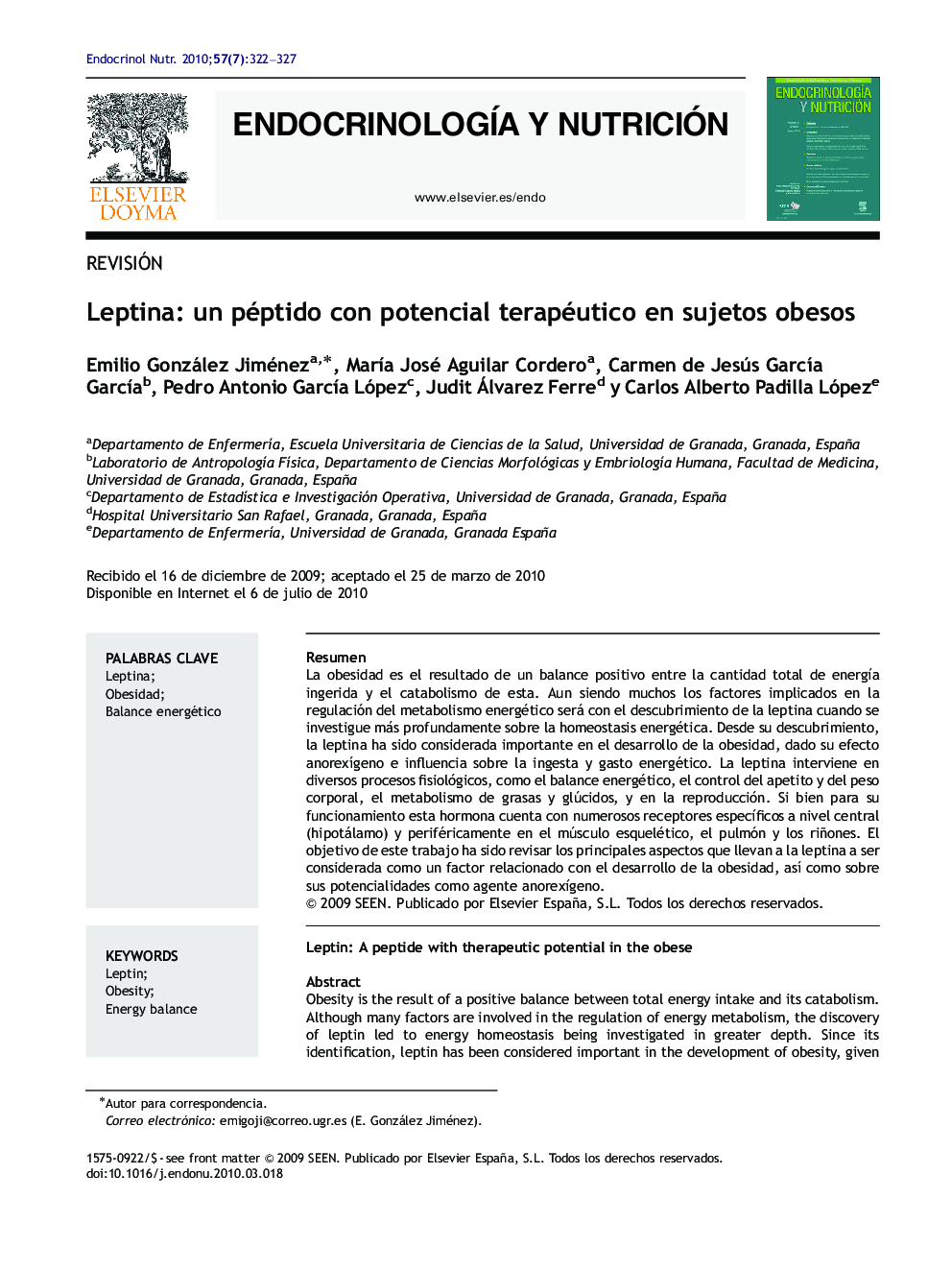| Article ID | Journal | Published Year | Pages | File Type |
|---|---|---|---|---|
| 2774325 | Endocrinología y Nutrición | 2010 | 6 Pages |
Abstract
Obesity is the result of a positive balance between total energy intake and its catabolism. Although many factors are involved in the regulation of energy metabolism, the discovery of leptin led to energy homeostasis being investigated in greater depth. Since its identification, leptin has been considered important in the development of obesity, given its anorexigenic effect and influence on food intake and energy expenditure. Leptin is involved in diverse physiological processes such as energy balance, appetite and body weight control, fat and carbohydrate metabolism, and reproduction. However, to be able to function, this hormone has many specific receptors both centrally (hypothalamus) and peripherally in the skeletal muscle, lungs and kidneys. This study aims to review the key aspects relating leptin to the development of obesity and discusses its potential as an anorectic agent.
Related Topics
Life Sciences
Biochemistry, Genetics and Molecular Biology
Clinical Biochemistry
Authors
Emilio González Jiménez, MarÃa José Aguilar Cordero, Carmen de Jesús GarcÃa GarcÃa, Pedro Antonio GarcÃa López, Judit Álvarez Ferre, Carlos Alberto Padilla López,
